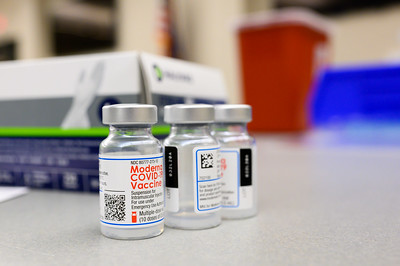On Thursday, the Michigan Department of Health partnered with 26 universities and colleges to promote vaccination among college students. The partnership did not include any community colleges. The State of Michigan will allocate doses of the one-dose Johnson and Johnson COVID-19 vaccine to participating institutions. The universities will attempt to vaccinate on-campus students before they return home for the summer.
Absence from the state’s partnership doesn’t mean Michigan’s community colleges aren’t doing anything to help students secure vaccines. Delta College, for example, has been hosting mass vaccination clinics in partnership with Bay County since March. Delta has also encouraged all students to contact the Bay County Health Department to make a vaccination appointment.
Bringing students back to campus safely undoubtedly relies on vaccination. Last week, Rutgers University became the first US university to require on-campus students to get a COVID-19 vaccine. Several other universities quickly followed suit. In the coming months, community colleges will also decide whether to require their students to be vaccinated.
States and institutions are already hotly debating “vaccine passports.” Governors in Florida and Texas have issued executive orders prohibiting entities from demanding proof of vaccination. At the same time, vaccination requirements in educational settings are both well-known and legally settled.
The COVID-19 vaccine is somewhat different because technically, the FDA has not approved it for use in humans. The vaccines have only emergency authorizations. Manufacturers and regulators continue to observe their effectiveness and side effects. No one yet knows what the long-term effects of the vaccine might be.
Unknown disease v. unproven vaccine
On the other hand, a study published in the British medical journal The Lancet this week suggested that one-third of COVID-19 patients who recover develop neurological or mental health disorder within 6 months of contracting the disease. Patients most frequently developed mood and anxiety disorders, substance use disorder, insomnia, ischemic stroke, dementia and brain hemorrhage. The severity of the patient’s COVID-19 case predicted the development of neurological complications. Just as we do not know the long-term effects of the vaccine, we also do not know the long-term effects of the virus.
Further, we do not know what vaccination level will enable us to achieve so-called herd immunity. The rate varies by disease. According to the World Health Organization, particularly virulent diseases like measles requires a vaccination rate of about 95% to eliminate community spread. Polio, on the other hand, requires a vaccination rate of only about 80% to prevent communal transmission. We do not know enough about either this disease or the vaccination to predict tight control over community spread.
Perhaps worst of all, we cannot predict who will develop serious disease. Unlike a university campus, where students typically occupy a narrow age range, community colleges serve everyone from teenagers to senior citizens. Additionally, members of the community come to campus regularly for non-credit classes and on-campus events. The risk of transmission to vulnerable people is high. Further, with large-scale training events, WCC welcomes people from all over the United States. These gatherings have the potential to morph into super-spreader events and prolong the pandemic in both Washtenaw County and around the United States.
Require a COVID-19 vaccine as part of return-to-campus
The WCC Board of Trustees should limit in-person access the campus for the remainder of this school year, and for the 2021-22 school year to individuals who can demonstrate that they have had the COVID-19 vaccine. If, as expected, Pfizer wins emergency authorization to give the vaccine to adolescents between the ages of 12-15, this would provide an in-person instruction option for all WTMC students.
In making this requirement, the Trustees should also work with the Washtenaw County Health Department and the Michigan Department of Health and Human Services to provide on-campus vaccination opportunities to WCC students, WTMC students and their families.
Photo Credit: Maryland National Guard, via Flickr












